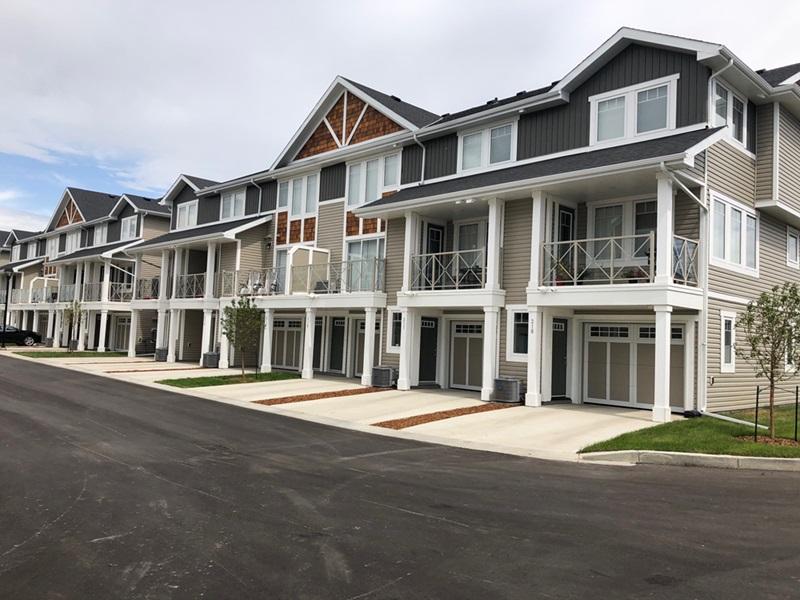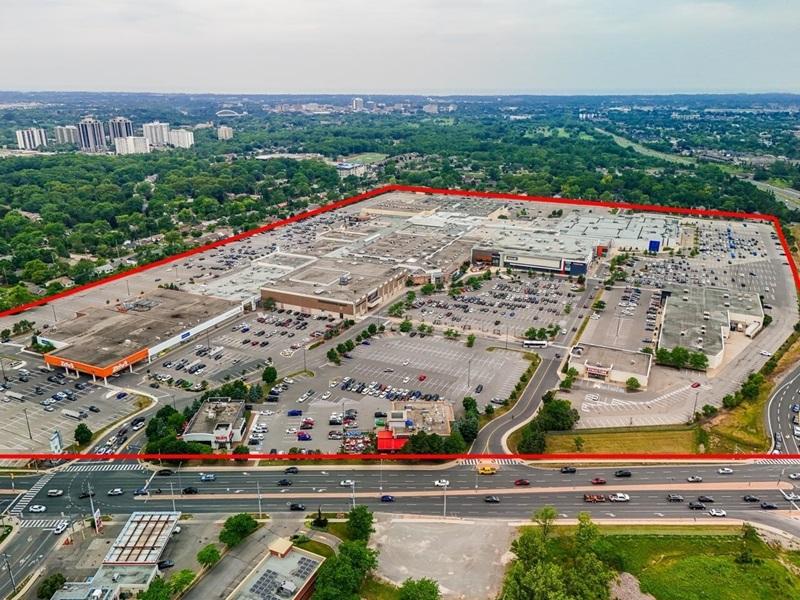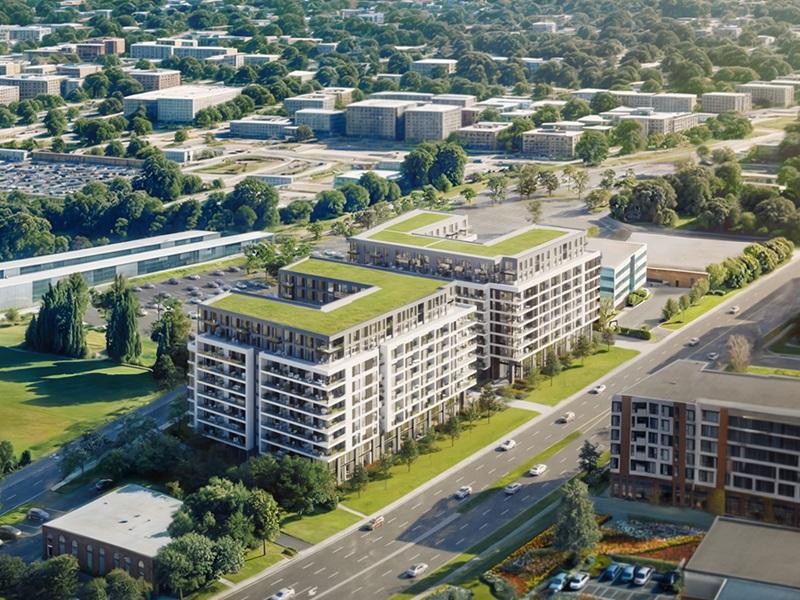
The apartments rental and investment market in Montreal is ‘on fire’, QAIC panelists agreed. (Google Maps image)
Montreal and its rental and apartment investment market are “on fire.”
That was the phrase heard most often during the Quebec Apartment Investment Conference in Montreal on Feb. 12.
Conference-goers heard, among other things, more rental units than condos are being built in Montreal for the first time since the 1990s. In 2018, 11,400 rental units were under construction in the city, a 30-year record, said Lukas Jasmin-Tucci, senior analyst, economics, market insights at CMHC.
In Montreal, “you drive around and you see all the cranes and you start to get a little bit nervous about all the units under construction,” said James Wilson, managing director, investment management at real estate investment and management company Realstar Management. But “in reality, CMHC and others are saying that the vacancy rate is only going to go up by 10 basis points in 2019.”
(CMHC forecasts the rental vacancy rate in Montreal will increase from 1.9 per cent in 2018 to 2 per cent in 2019, compared with a four per cent vacancy rate in 2015.)
Despite the numbers of units under construction, “the demand is there to take all of those apartments,” Wilson noted, adding “there are solid fundamentals for investment compared to a lot of the other cities that have a lot more of their universe under construction.”
Rent controls in Quebec also mean there is not too much supply coming on stream, he said.
Infrastructure builds fuel growth
Wilson said with major infrastructure projects underway like the Turcot Interchange, Champlain Bridge and REM light-rail train, governments are getting things done effectively, stimulating the economy and creating jobs.
“There are other major cities in Canada that are not doing that as effectively from a government standpoint.” Quebec’s political scene, which used to be a concern, is now viewed as strong and stable, he added.
Montreal’s demographic growth was twice as high between 2011-2017 as it was between 2006-2011 and this has fuelled the rental market, said Jean-François Gilbert, president and partner at real estate consultancy GDA Montreal.
A huge 60 per cent increase in foreign students in Montreal in the past five years has added to the buoyancy of the rental market, said Vincent Shirley, director, real estate development at Altus Group in Montreal.
Apartments benefit from change in mentality
Patrice Ménard, co-owner and real estate broker at PMML, said a change in mentality has also led to the construction of more new rentals in Montreal. “I am a tenant by choice,” is the view held by both the young and baby boomers, he said.
Many empty nesters are selling their bungalows and moving into rental apartments.
Wilson said there is room for increases in rental rates in Montreal. He noted Montrealers spend 20 to 30 per cent of their incomes on rent compared with the 30 to 40 per cent spent by Torontonians and Vancouverites.
The potential for rent increases is highest in new properties which are in high demand from renters, said James Palladino, managing director, RBC Capital Markets Real Estate Group. In the short term, it should be possible to raise rents in newly built apartments in downtown Montreal from $2.40 to $2.60 per square foot to above $3, he said.
Palladino said rents in Montreal are considered extremely low by foreign investors who see there is more profit to be made elsewhere.
Marc Hetu, vice-president and co-leader of the CBRE National Apartment Group in Montreal, said foreign investors have apprehensions about the rental board, possible returns, politics and Quebec’s French reality. While there are many meetings with potential multi-res investors, “we see very few executions.”
The only major foreign real estate players that have entered the market in a big way in recent years are Akelius from Sweden and Blackstone.
“On the other hand, we’re on the right path and I’m optimistic we will see several players,” he said.
Demand continues to outstrip supply
When it comes to investment opportunities, demand has definitely outstripped the supply of apartments coming onto the market, said Wilson.
For those who do have apartment investments, finding the right employees who will help make investments successful has become difficult due to a declining unemployment rate, Wilson said. “We’re really struggling” and the situation may be even more challenging in five or 10 years.
Ménard said there is an enormous amount of opportunity for investors to optimize existing older buildings that are mortgage-free or are badly managed.
Palladino said multi-res investors and developers in Montreal are increasingly looking at developing shopping centres into residential properties with commercial components as a way of generating revenue.
Sites surrounding the new REM also have high potential for apartment investors, he said. The REM “will change the equation.”
He added Montreal will need to continue to invest in infrastructure to maintain its current “on fire” status.
“Montreal is in a very good place right now in the Canadian marketplace. Everybody’s talking about it. We’re on the radar. We have to seize the opportunity.”







